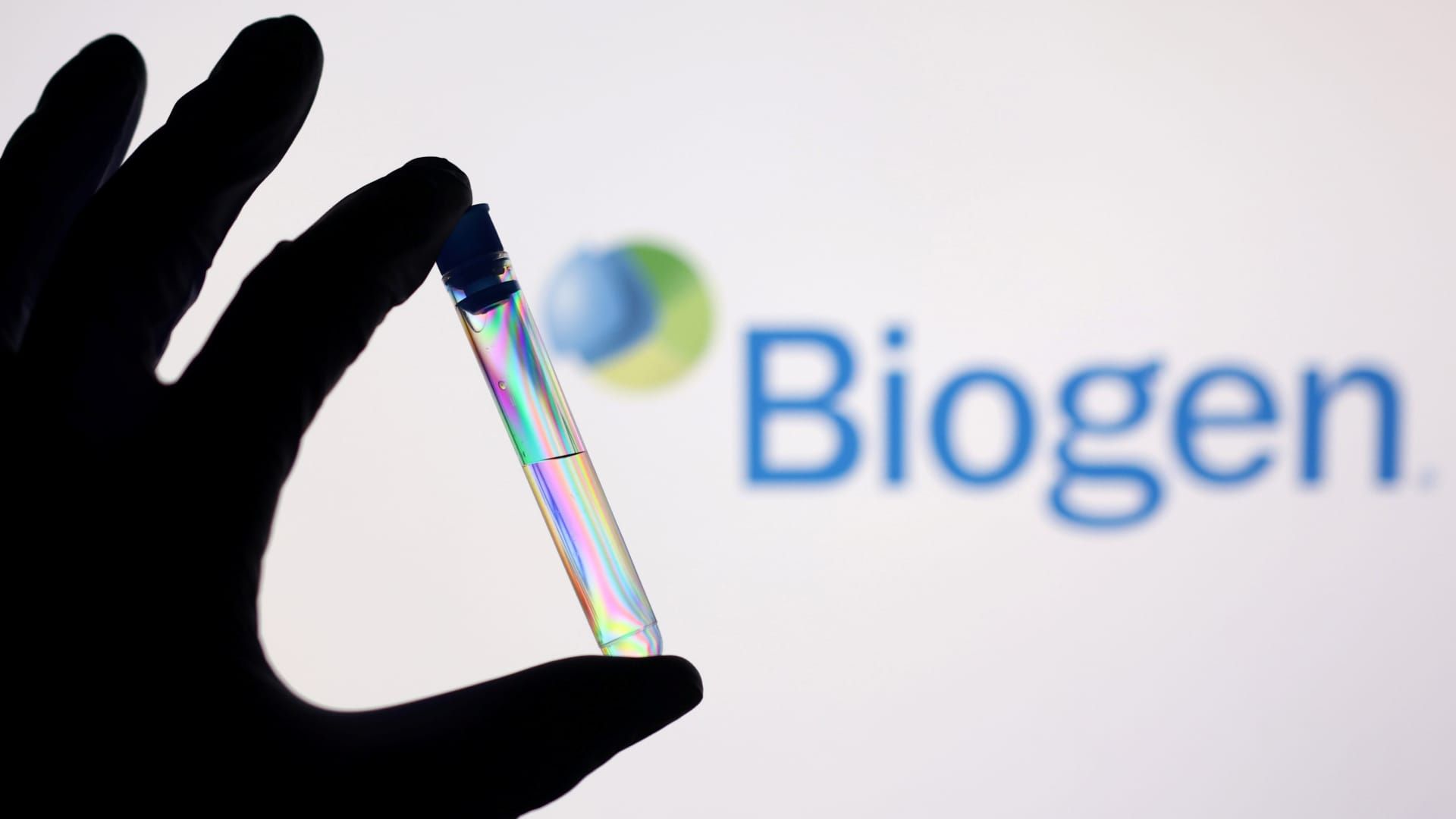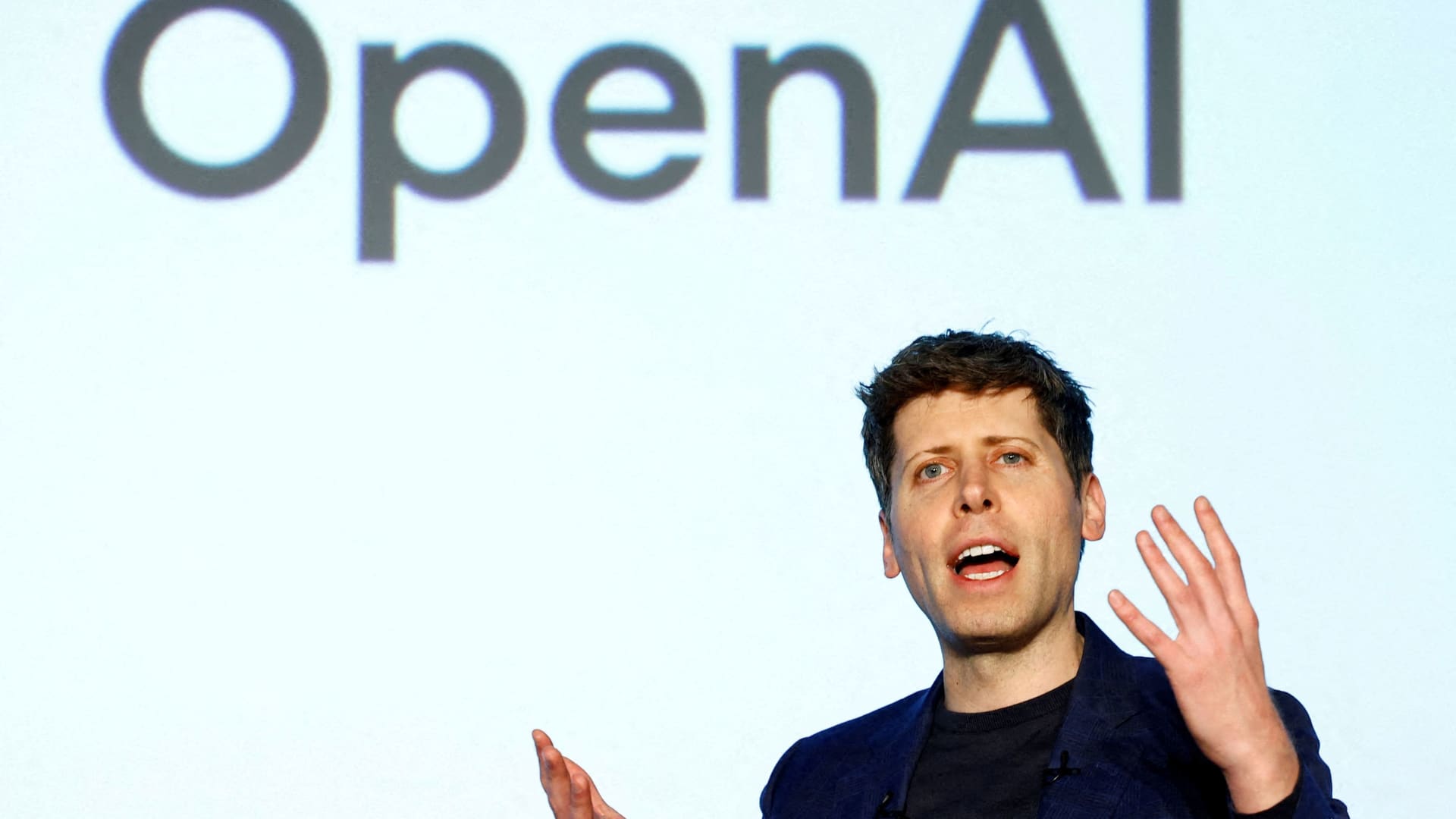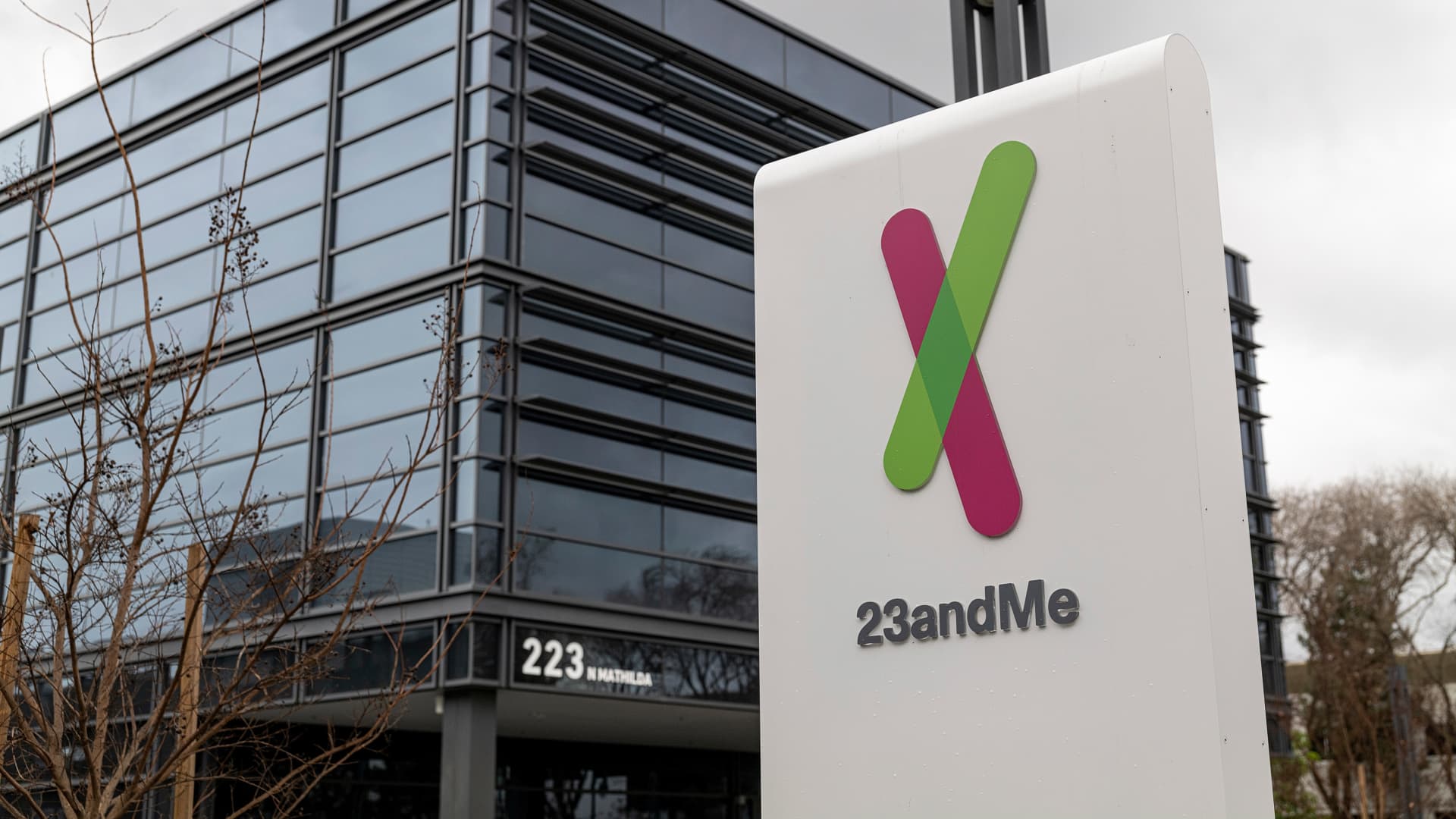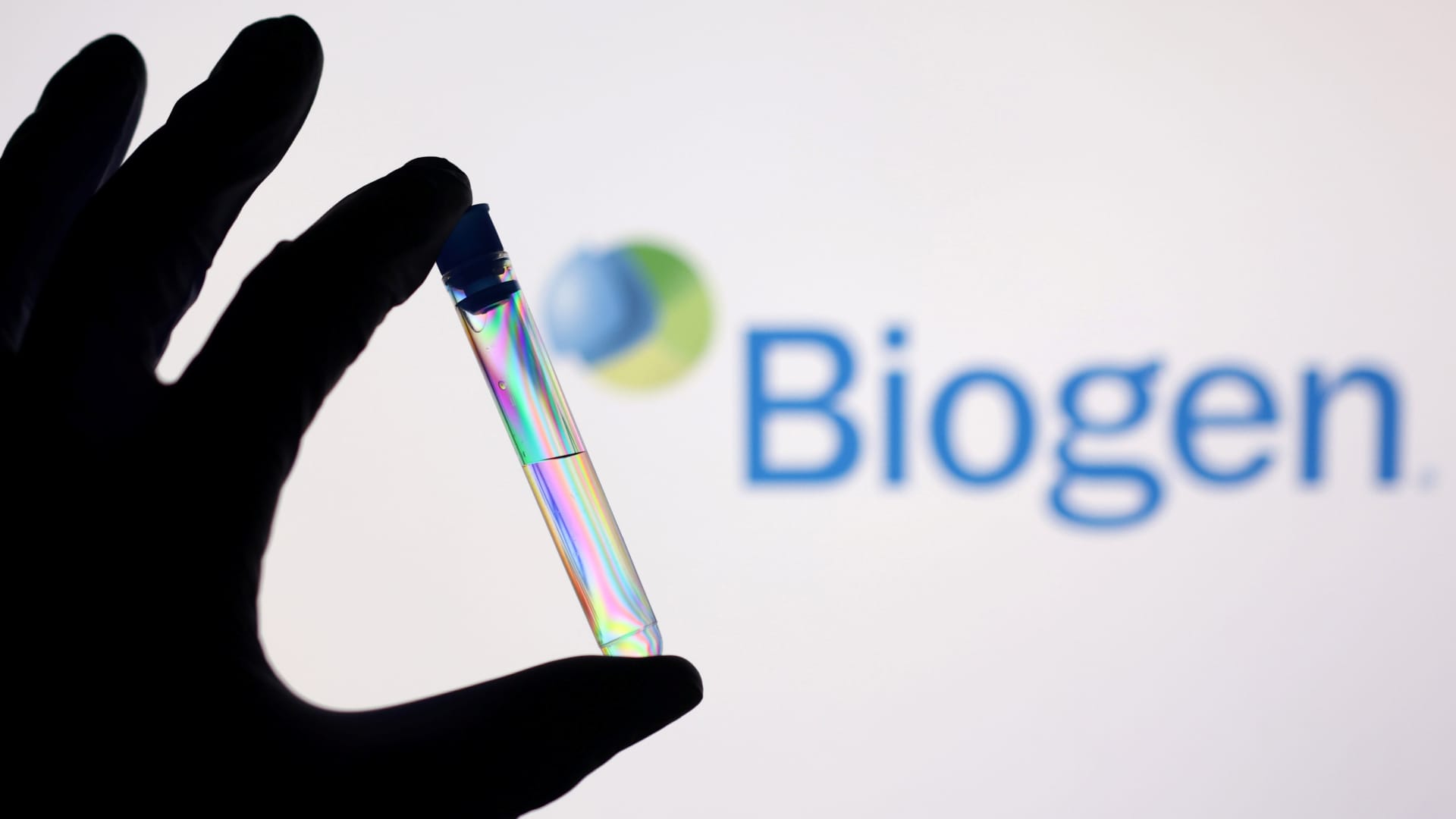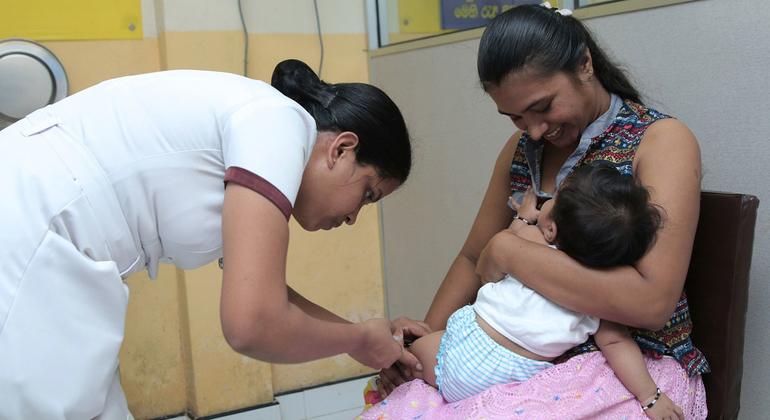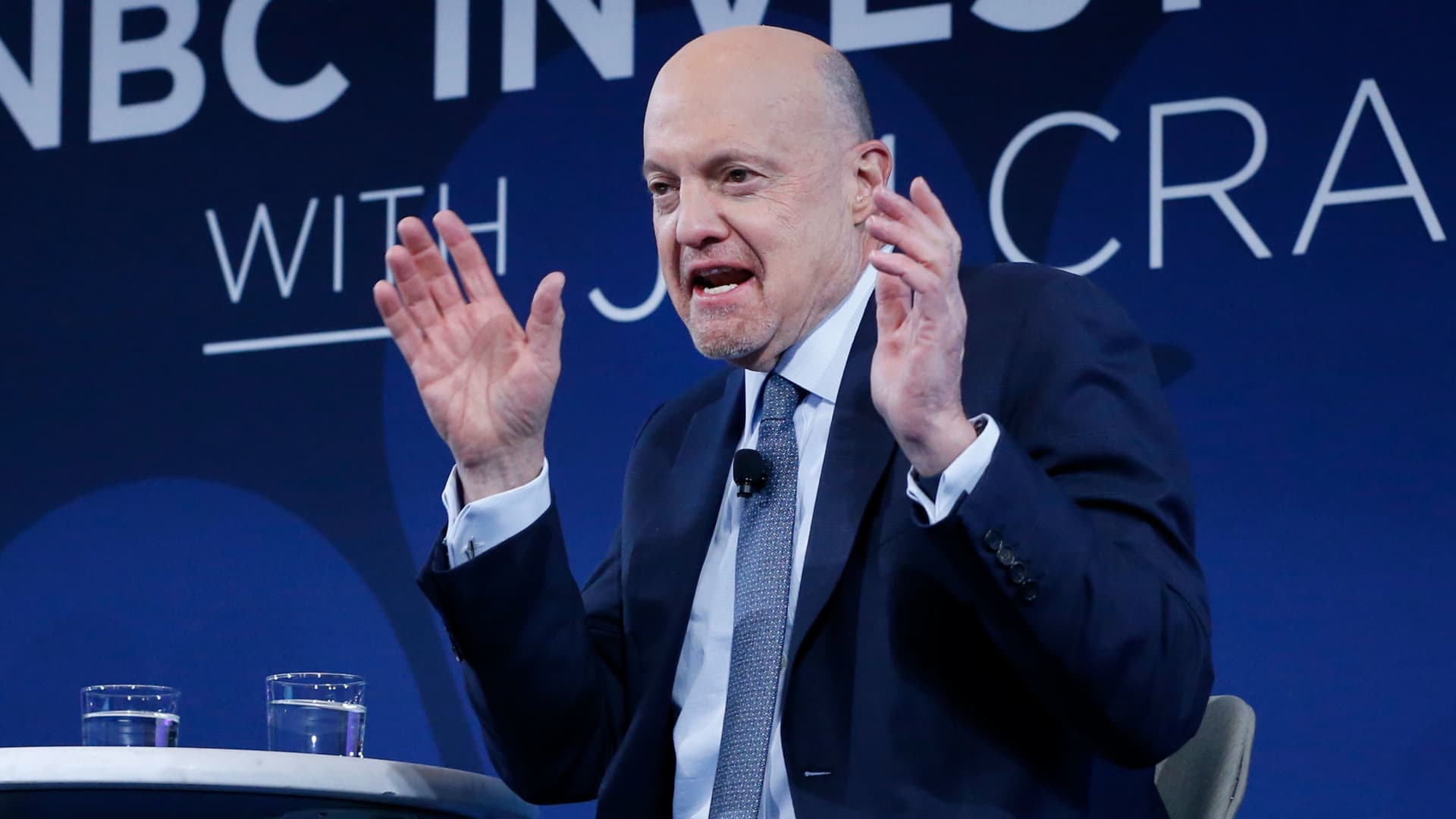A test tube is seen in front of the Biogen logo in this illustration taken on December 1, 2021.
Ruvic Dice | Reuters
biogen It reported first-quarter earnings Wednesday that beat estimates as the company's cost-cutting efforts took hold and sales of its closely watched Alzheimer's drug Leqembi were stronger than expected.
Biogen and EisaiLeqembi became the first drug that slows the progression of Alzheimer's disease to gain approval in the U.S. in July. The treatment's rollout has been slow, but its uptake appeared to accelerate toward the end of the first quarter.
Leqembi generated about $19 million in sales during the quarter, up from $10 million the drug generated last year. That beats the $11 million analysts were expecting, according to estimates compiled by FactSet.
The number of patients receiving the therapy has increased nearly 2.5 times since the end of 2023, according to Biogen. The company added that the number of new patients starting Leqembi increased in March, representing more than 20% of the total patients currently receiving the treatment.
Biogen did not provide a specific number of patients using Leqembi. But in February, Biogen CEO Chris Viehbacher told reporters that there were around 2,000 patients currently taking Leqembi. Biogen and Eisai had previously aimed to treat 10,000 patients by March, but indicated in February that they would not meet the goal.
Biogen is seeing “huge momentum” in the launch of Leqembi and expects quarterly growth in patient numbers, but that growth may not be linear, Viehbacher said during an earnings conference call Wednesday. He noted that Biogen plans to expand its US marketing force by 30% to support the launch of Leqembi.
Hurdles related to Leqembi requirements, such as twice-monthly infusions and regular brain scans, have slowed absorption of the drug, he added.
The company hopes the drug and other newly launched products will drive growth as it cuts costs and sees sales decline for its multiple sclerosis therapies, some of which face generic competition.
Biogen shares rose 6% on Wednesday following the results.
Here's what Biogen reported for the first quarter compared to what Wall Street expected, according to a survey of analysts by LSEG:
- Earnings per share: Adjusted $3.67 vs. expected $3.45
- Revenue: $2.29 billion vs. $2.31 billion expected
The biotech company posted sales of $2.29 billion for the quarter, down 7% from the same period a year earlier. It reported net income of $393.4 million, or $2.70 per share, for the first quarter, compared with net income of $387.9 million, or $2.67 per share, for the same period of the year. former.
Adjusting for one-time items, the company reported earnings of $3.67 per share.
Biogen reiterated its full-year 2024 adjusted earnings guidance of between $15 and $16 per share. Analysts surveyed by LSEG expected full-year earnings of $15.49 per share.
The company also reiterated its 2024 sales guidance of a low- to mid-single-digit percentage decline compared to last year.
Newly Launched Drugs Beat Estimates
In addition to Leqembi, investors also have their eyes on other newly launched drugs.
That includes Skyclarys, acquired through Biogen's acquisition of Reata Pharmaceuticals in July. That drug earned $78 million in revenue in the first quarter.
Analysts had expected sales of $68.8 million, according to FactSet estimates.
The Food and Drug Administration approved Skyclarys last year, making it the first approved treatment for Friedreich's ataxia, a rare inherited degenerative disease that can affect gait and coordination in children as young as 5 years old. In February, European Union regulators approved Skyclarys for the treatment of Friedreich's ataxia in patients 16 years of age and older.
More than 1,100 patients in the U.S. and 300 in the EU are taking Skyclarys, Biogen executives said during the earnings call Wednesday.
Biogen also partnered with Sage Therapeutics on the first pill for postpartum depression, which won FDA approval in August. But the agency declined to authorize the drug for major depressive disorder, which is a much larger market.
Biogen said that pill, called Zurzuvae, generated first-quarter sales of $12 million. Analysts expected only $5 million in sales of that drug, FactSet said.
Multiple sclerosis medications, other treatments.
Meanwhile, Biogen's first-quarter revenue from multiple sclerosis products fell 4% to $1.08 billion as some of its therapies face competition from cheaper generics.
Tecfidera, the company's once-blockbuster drug, which faces competition from a generic rival, posted revenue of $254.3 million in the first quarter, up from $274.5 million in the same period a year ago. .
Still, that figure was higher than analysts' estimate of $227.7 million, according to FactSet.
Vumerity, an oral medication for relapsing forms of multiple sclerosis, generated $127.5 million in sales. That was below analyst estimates of $137.9 million, according to FactSet estimates.
Biogen's rare disease drugs posted $423.9 million in sales, up from $443.3 million in the same period a year earlier.
Spinraza, a drug used to treat a rare neuromuscular disorder called spinal muscular atrophy, reported sales of $341.3 million. That was below analysts' estimate of $415.1 million in revenue, according to FactSet.
Biogen said the timing of Spinraza shipments and increased competition affected first-quarter revenue comparisons outside the U.S.
The company's biosimilar drugs posted sales of $196.9 million, slightly above the $192.4 million reported during the same period last year. Analysts expected sales of $192.5 million for those drugs.
Correction: Skyclarys had $78 million in revenue in the first quarter. A previous version incorrectly indicated the quarter.

